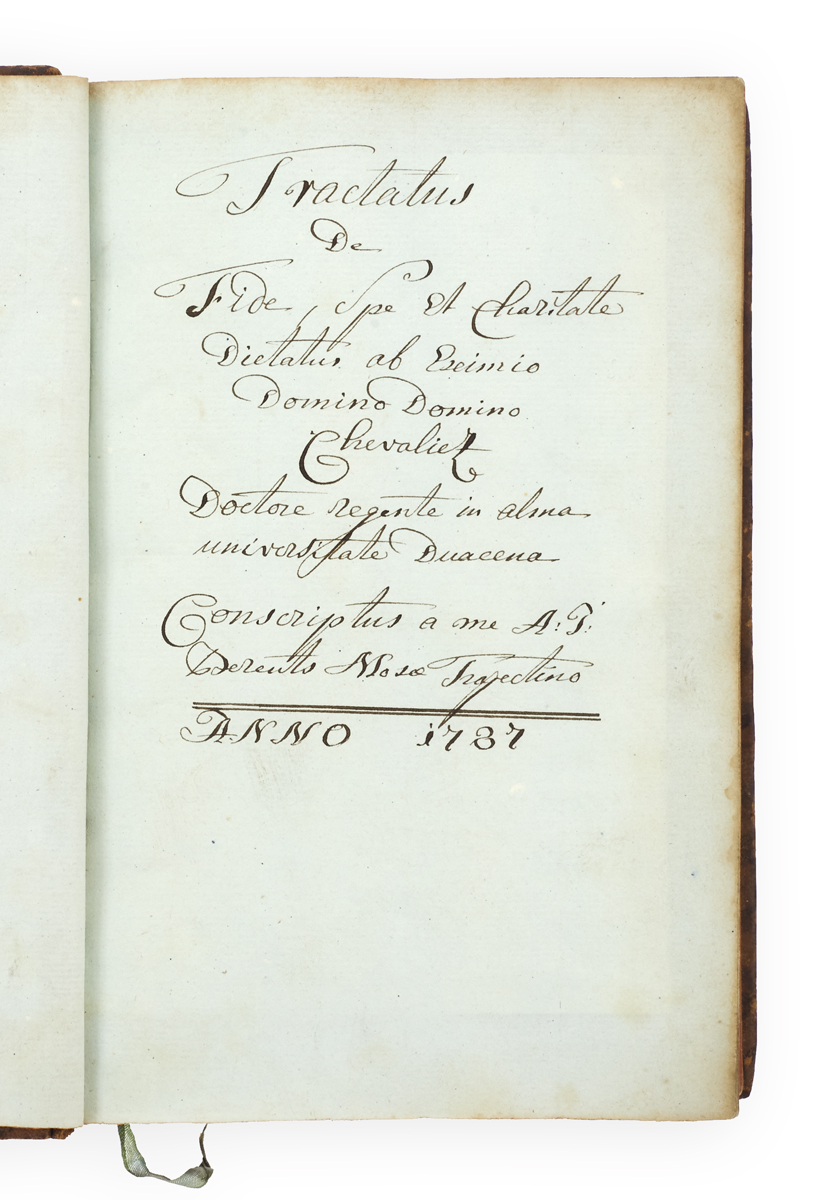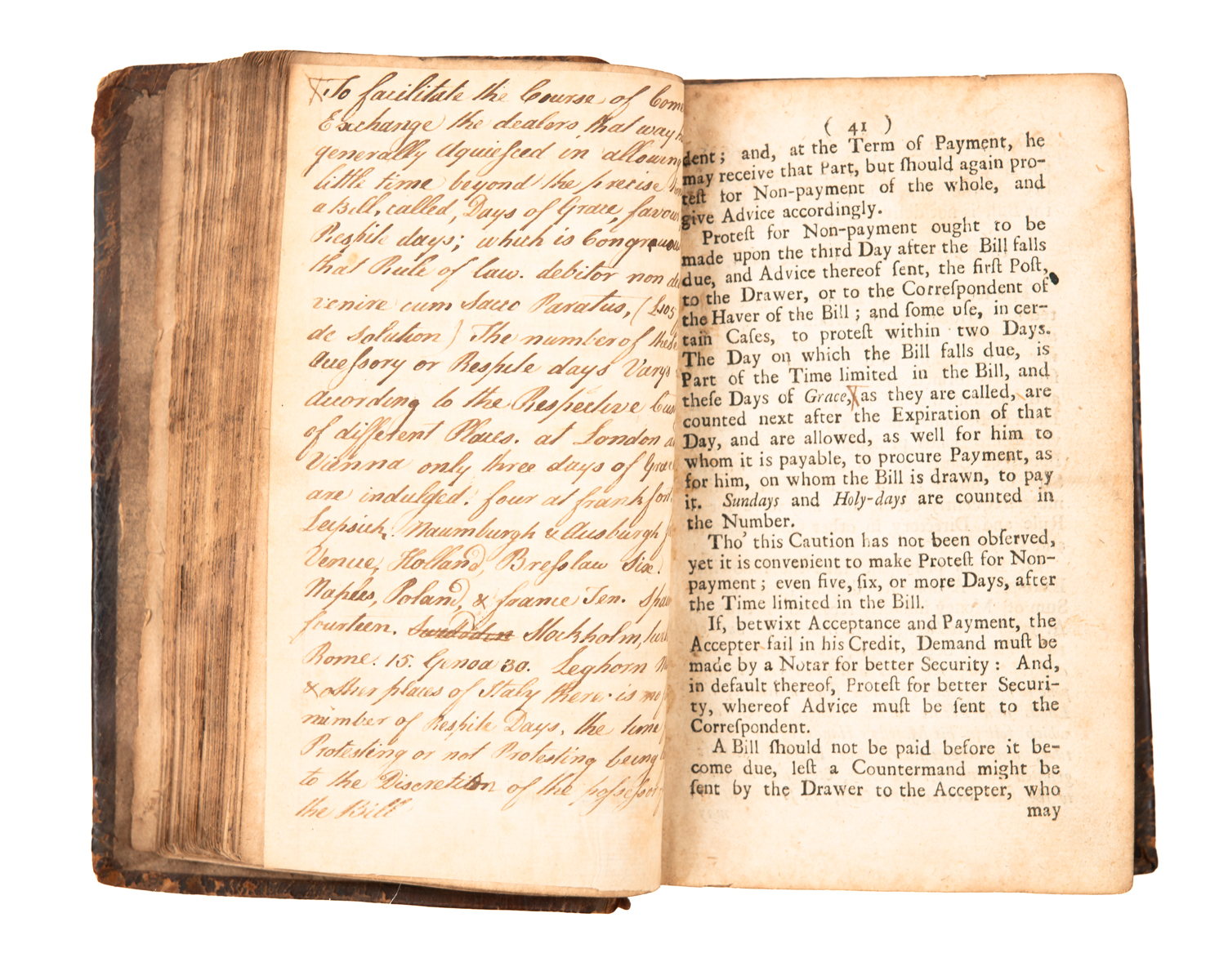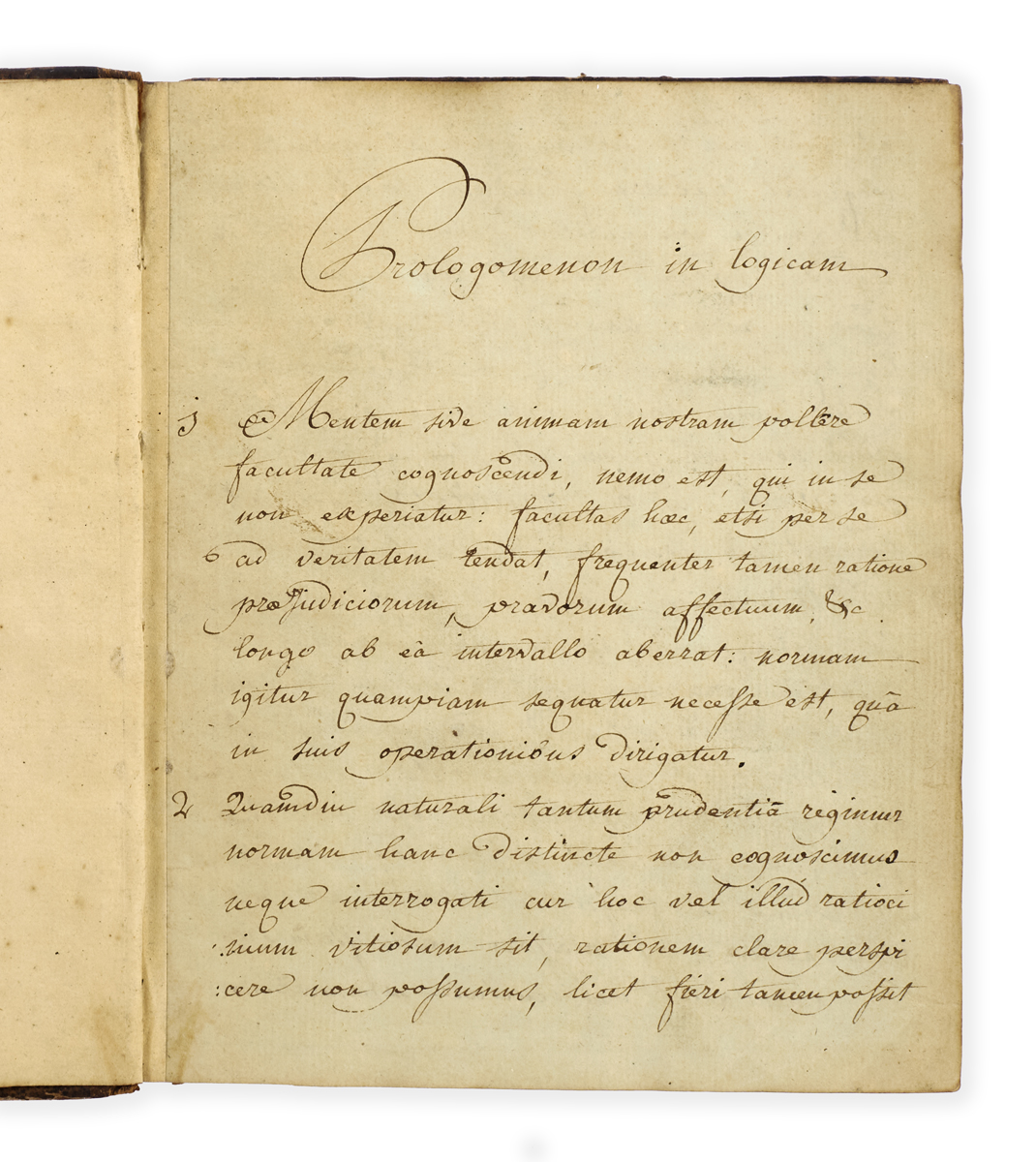
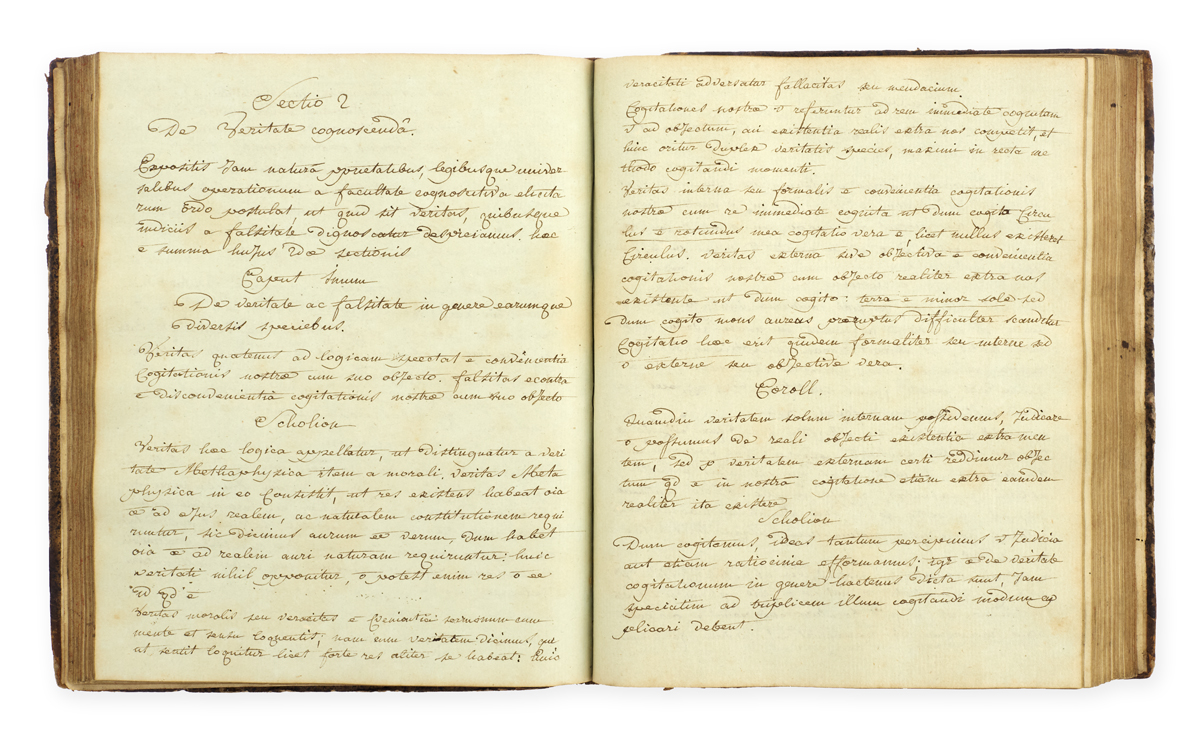
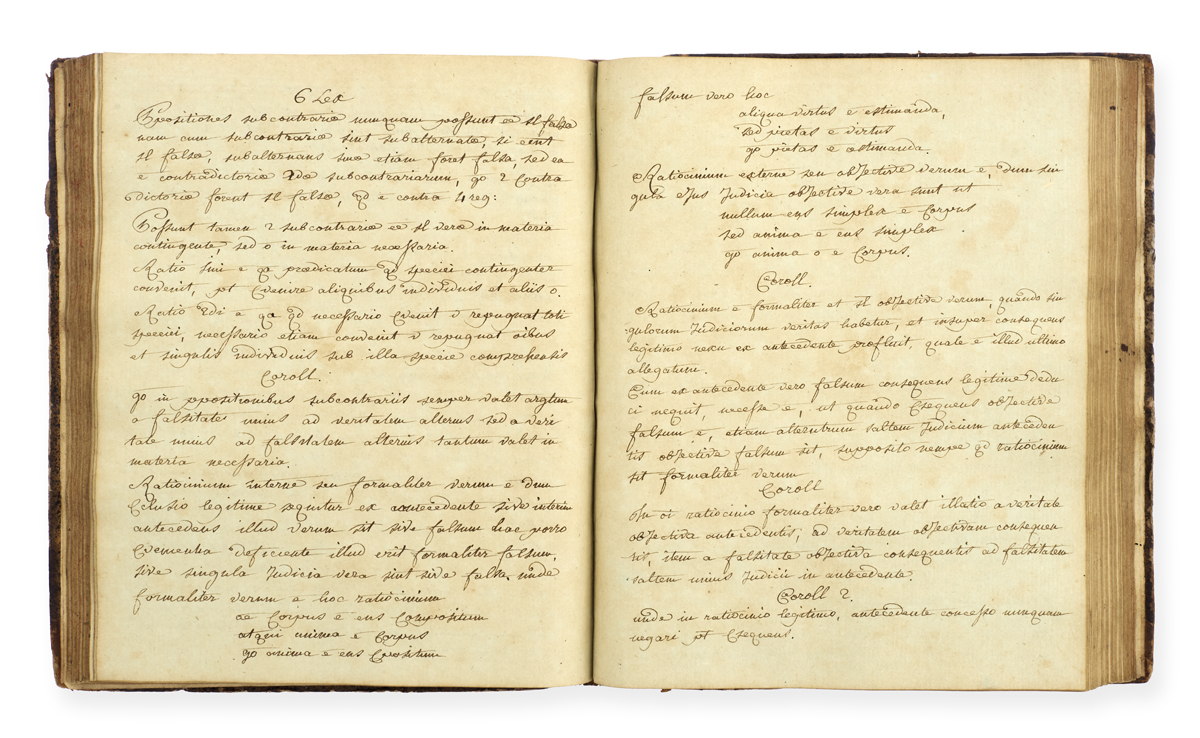
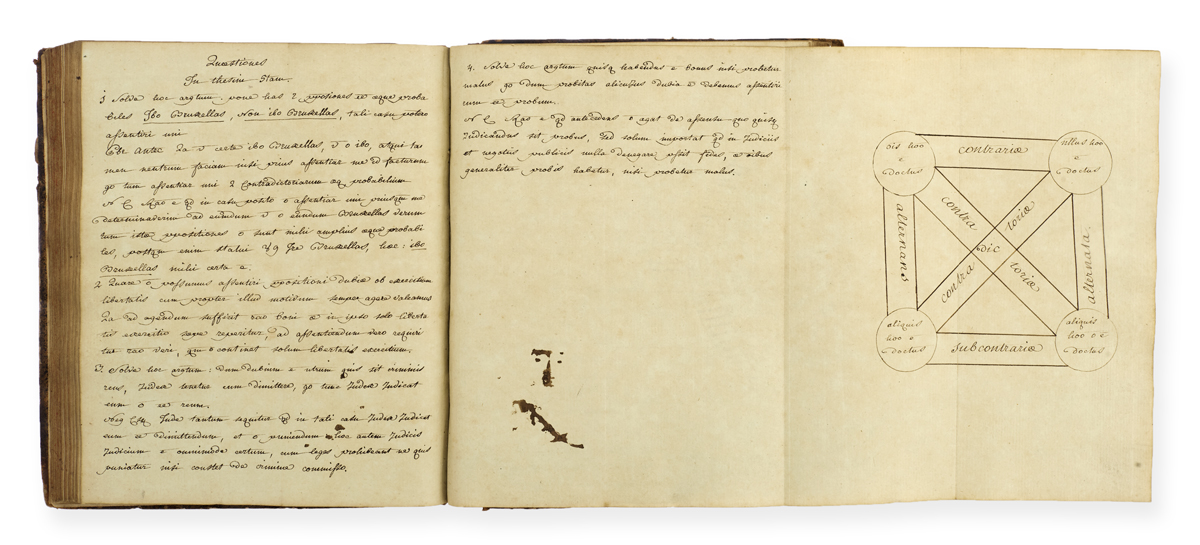
BRUSSELS JESUIT LOGIC
[PHILOSOPHY.]
Philosophy course on logic.
[Brussels, early eighteenth century?]
Manuscript on paper, in Latin, 4to (205 x 165 mm), ff. [148]; neatly written in brown ink in a single hand, up to 33 lines per page, with one ink diagram on a fold-out leaf; very good with occasional ink stains and faint spotting; in contemporary half sheep with speckled paper sides, spine gilt in compartments with gilt-lettered label (‘Logica’), edges sprinkled red; somewhat worn, joints cracked, endcaps chipped.
An elegant manuscript philosophy course on logic. Following a brief introduction (Prolegomenon in logicam, ff. [1]r-[2]r), the first part of the treatise is devoted to the cognitive faculty of the human mind (De facultate cognoscitiva mentis humanae, ff. [2]r-[53]r), with discussion of the use and abuse of words, of definition, division, and argumentation. The next section is devoted to truth (De veritate cognoscenda, ff. [53]v-[107]r), discussing, for instance, the veracity of perception and reasoning, of testimony, and authority. At the end of this second section is the fold-out pen-and-ink diagram of the ‘square of opposition’ (f. [108]), representing the relations between the four basic categorical propositions, whose origins can be traced back to Aristotle. In the remainder of the manuscript, logic problems (questiones) and solutions (solutiones) are followed by short compositions (ff. [107]v ad finem) illustrative of the manuscript’s educational nature.
The manuscript was likely produced in a Jesuit college where, along with natural philosophy and metaphysics, logic was one of the three philosophy courses taught. References to the city of Brussels (e.g. [107]v) within the manuscript likely indicate its origin.
